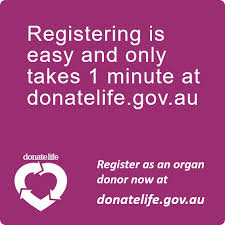How Organ Donation Can Save Lives and Improve Quality of Life
Discover the impact of organ donation and learn how you can contribute to saving lives during Donate Life Week in Australia.
7/29/20242 min read


Donate Life Week: Enhancing Lives Through Organ Donation
Donate Life Week is fast approaching in Australia, and it's the perfect time to increase awareness and encourage organ donor registration. On our channel, we often focus on self-improvement and enhancing our own quality of life. This week, we're turning our attention outward, exploring how we can positively impact others' lives through organ donation.
The Importance of Organ Donation
Did you know that only 2% of hospital deaths each year are eligible for organ donation? Yet, one organ donor can save up to seven lives and help many more through eye and tissue donations. Increasing the number of registered donors is crucial. For example, if 100 people register, potentially two donors could save 14 lives. If 200 people register, four donors could save 28 lives.
Currently, around 1,800 Australians are on the organ donation waitlist, with an additional 14,000 needing a kidney to escape dialysis. But who exactly benefits from organ donations?
Who Needs an Organ?
Kidneys: The most in-demand organ, crucial for those with severe kidney failure.
Hearts: Needed for heart failure, infections, or defects.
Lungs: Vital for those with cystic fibrosis, emphysema, and other conditions.
Livers: Necessary for liver disease, hepatitis, or congenital defects.
Pancreas: Often transplanted with a kidney for those with type 1 diabetes.
Eyes: Corneal transplants can restore sight; scleral grafts help prevent blindness.
Bone Tissue: Helps those who've lost bone through cancer or accidents, strengthens joint replacements, and repairs spinal curvatures.
Skin: Aids those with severe burns or trauma through skin grafts.
When you register, you can specify which organs and tissues you wish to donate. Remember, you won't miss them when you're gone!
Debunking Myths About Organ Donation
Despite common myths, medical staff will always prioritize saving your life. They don't see you as a potential organ donor but as a patient. Also, it's crucial to inform your family of your decision to donate, as they have the final say. Lastly, don't assume you're too old or unhealthy to donate—let the doctors decide that when the time comes.
How to Register
Registering to be an organ donor is quick and easy. Anyone over 16 can register on the Donate Life website with a Medicare card. The process takes less time than a TV ad break! After registering, inform your family and consider discussing advance care planning.
Join the Conversation
Have you registered to be an organ donor, or do you know someone who has benefited from a donation? Share your experiences in the comments. Donate Life will be hosting events nationwide next week, so check out their website for more information. If you're in Perth, join us at the Gift of Life Walk on Sunday.
And with that, go talk death.
Ready to dive deeper into these crucial conversations?
Book a personalised 1-hour consultation today and gain valuable insights tailored to your specific concerns.



